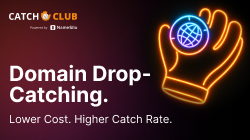- Joined
- Aug 23, 2007
- Messages
- 317
- Reaction score
- 3
By Jim Kerstetter, CNET Tue Aug 19, 12:01 AM ET
Add the University of Michigan's annual American Customer Satisfaction Index for the e-business sector to the list of surveys that show Google is doing really, really well.
The ACSI, set to be released early Tuesday, puts Google at the top of the heap for customer satisfaction in the big search and portals category. Google's score of 87 out of 100 (based on interviews with 3,000 customers) is one of the highest scores ever recorded by the ACSI.
For the e-business sector as a whole (including search and portals and a second category for news and information sites), the survey paints an improving picture: customer satisfaction improved 5.5 percent from 2007 to 79.3 this year on the ACSI's 100-point scale. That's a 25.9 percent jump since e-businesses were added to the survey in 2000.
"Satisfaction," of course, is a tricky thing to measure or even define, said Larry Freed, the author of the report and CEO of the consulting company ForeSee Results.
The ACSI is based on a methodology researchers won't disclose and is used to measure customer satisfaction in 40 different industries, both online and offline. Researchers believe that what they arrive at is a fair assessment of consumer expectations and perceptions for a company matched against that company's ability to deliver.
In 2008, Google returned to the top slot Yahoo had held in 2007 thanks to a significant redesign. Freed believes Google's strong showing may be a sign that the search king's innovations, whether it's as simple as improved weather results on searches or "universal" search (which blends maps, news, and other stuff into the list of text URLs in search), are starting to have an impact on mainstream customers. "It takes a while before people pick up on it," Freed said.
Yahoo's drop shouldn't be surprising, given the distraction of the Microsoft takeover bid, rapid executive turnover, and a perception that it isn't churning out interesting, new products as quickly as Google, said Freed. "They've got to stay focused on the customers as hard as it is with all the distractions," he said.
see the rest at (it has a cool little chart) http://news.yahoo.com/s/cnet/20080819/tc_cnet/8301102331001962193
Add the University of Michigan's annual American Customer Satisfaction Index for the e-business sector to the list of surveys that show Google is doing really, really well.
The ACSI, set to be released early Tuesday, puts Google at the top of the heap for customer satisfaction in the big search and portals category. Google's score of 87 out of 100 (based on interviews with 3,000 customers) is one of the highest scores ever recorded by the ACSI.
For the e-business sector as a whole (including search and portals and a second category for news and information sites), the survey paints an improving picture: customer satisfaction improved 5.5 percent from 2007 to 79.3 this year on the ACSI's 100-point scale. That's a 25.9 percent jump since e-businesses were added to the survey in 2000.
"Satisfaction," of course, is a tricky thing to measure or even define, said Larry Freed, the author of the report and CEO of the consulting company ForeSee Results.
The ACSI is based on a methodology researchers won't disclose and is used to measure customer satisfaction in 40 different industries, both online and offline. Researchers believe that what they arrive at is a fair assessment of consumer expectations and perceptions for a company matched against that company's ability to deliver.
In 2008, Google returned to the top slot Yahoo had held in 2007 thanks to a significant redesign. Freed believes Google's strong showing may be a sign that the search king's innovations, whether it's as simple as improved weather results on searches or "universal" search (which blends maps, news, and other stuff into the list of text URLs in search), are starting to have an impact on mainstream customers. "It takes a while before people pick up on it," Freed said.
Yahoo's drop shouldn't be surprising, given the distraction of the Microsoft takeover bid, rapid executive turnover, and a perception that it isn't churning out interesting, new products as quickly as Google, said Freed. "They've got to stay focused on the customers as hard as it is with all the distractions," he said.
see the rest at (it has a cool little chart) http://news.yahoo.com/s/cnet/20080819/tc_cnet/8301102331001962193








